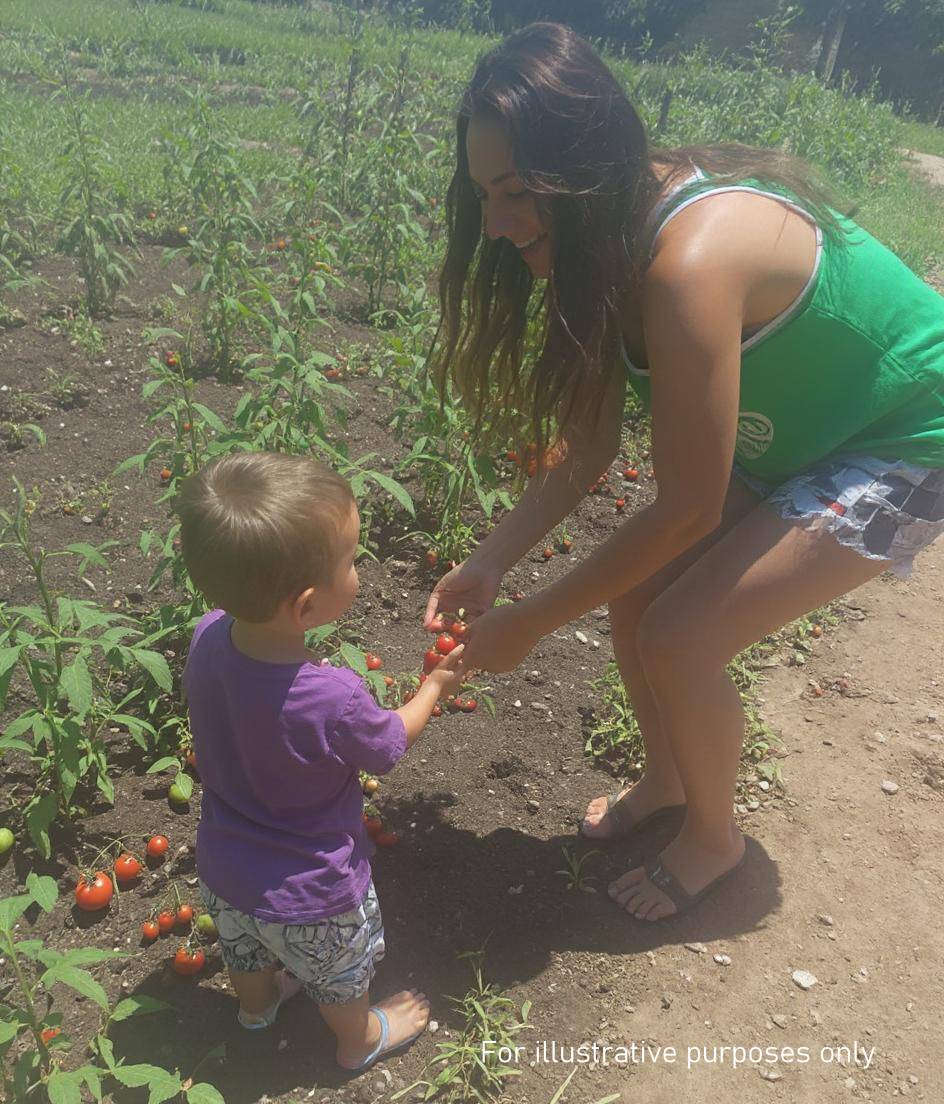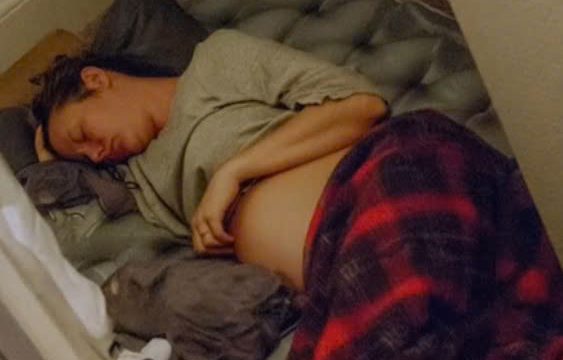My name is Mara, and I grow vegetables—not for some trendy lifestyle or social media clout, but because my family depends on it. Every tomato, cucumber, and carrot from my small backyard plot comes from early mornings, sore knees, and countless prayers that squirrels won’t get there before I do.

We’re not wealthy, and this garden helps us get by. I couldn’t afford a real fence, though I wish I could’ve years ago. Food is expensive, and building a fence seemed like a luxury. Farming for survival isn’t romantic—it’s grueling, exhausting work that feeds my family. My neighbor Julian once set up a “community pantry” near his driveway, a cheerful wooden box filled with canned goods, and he dubbed it “The Sharing Shelf.” He posted smiling selfies on Facebook about kindness and community. It sounded sweet, but soon people began treating my garden like it was an extension of his pantry.
At first, it was subtle. A missing cucumber here, a few radishes yanked from the soil there. I blamed raccoons or squirrels. But then I saw a woman hoist her toddler over my bunny fence, cheering him on as he picked my tomatoes—my dinner plans. I stood on the porch, stunned, holding a hose, while she waved at me like we were at a barbecue instead of stealing food from my garden. That’s when I knew this wasn’t an accident. I put up clear signs: “Private Property—Do Not Touch!” and even built a smaller inner fence. They ignored both. I draped a tarp to block the view from the street, but someone ripped it down in three days.
Then I caught a man with a Bluetooth headset creeping through my squash plants. He said he just needed a few tomatoes for his anniversary dinner. I told him to leave. Later, I found teens hanging out, drinking soda, and stomping my lettuce. I was done. I confronted Julian. Covered in zucchini dirt, I told him that while his pantry may have had good intentions, it encouraged people to think they were entitled to my produce. He smiled, asked if I could share a few. I said no. “I grow food to feed my family,” I said, fighting tears. “If I had extra, I would. But I don’t.” He didn’t seem to understand. It wasn’t about tomatoes.
It was about respect. About hours spent learning about compost and soil pH. About starting over when my hose burst and flooded my seedlings. About sunburned afternoons planting beans I wasn’t sure would grow. When someone said I should feel grateful for having enough to share, that really stung. Then, one day, I found half my zucchini gone, snapped from the vines. That was it. I remembered the irrigation system I’d stored away. I spent the whole day rewiring motion sensors, repositioning pipes, and fine-tuning nozzles. Then I waited. The first intruder was a woman with a yoga mat who tried to reach over the fence and was hit square in the chest with a water jet. She screamed and fell backward into the mulch. Next was a man in cargo shorts who got blasted by a cold spray and slipped while fleeing.
Suddenly, the visits stopped. Rumors spread: “Mara booby-trapped her garden!” “Beware the water guns!” Julian accused me of harassment. I said, “It’s just water. If they weren’t trespassing, they wouldn’t get wet.” He told me I was ruining the spirit of the neighborhood. I calmly replied, “I’m protecting my home.” Over time, my garden healed. Tomatoes ripened without disappearing. Peppers stayed on the vine. My kids started talking about salads again. Then one afternoon, I saw a girl, maybe twelve, standing outside the fence with a paper bag. She apologized for her brother taking from my garden.
The bag held cookies she made with her mom. I accepted them, not because I wanted sweets, but because she stayed behind the fence and looked me in the eye. She got it. She even said the sprinkler system was “cool,” despite her brother thinking it was crazy. That night, my husband whispered, “It feels peaceful again.” I nodded. “They thought I was crazy.” He laughed, “Maybe, but in the best way.” I smiled. “I just wanted to protect what matters.” And I did. My garden’s still imperfect—spinach wilts, weeds pop up—but now it’s respected. Passersby stop but don’t trespass. They read the signs. Julian moved his Sharing Shelf elsewhere. The pantry wasn’t the problem. The entitlement was. If they had just asked, I might’ve shared a tomato. But they didn’t. They took. And sometimes, the price for taking is getting soaked and humbled. Now, I’m saving for a greenhouse—to keep growing, feeding my family, and holding my ground.





